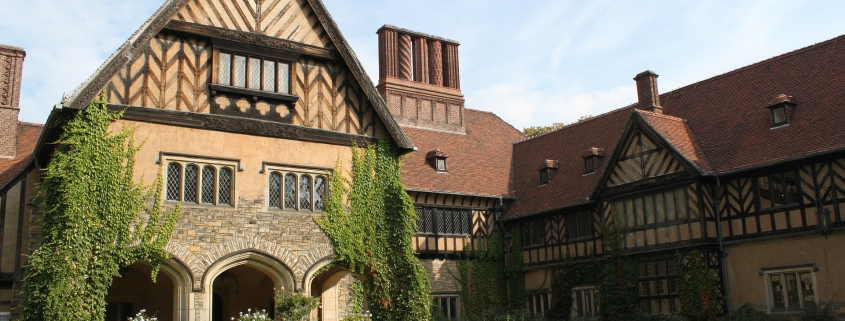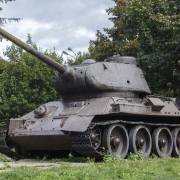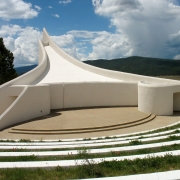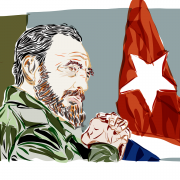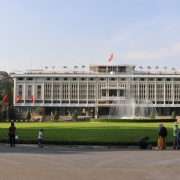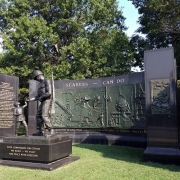What was the main purpose of the Potsdam Conference?
Topic of Study [For H2 and H1 History Students]:
Paper 1: Understanding the Cold War (1945-1991)
Section A: Source-based Case Study
Theme I Chapter 1: Emergence of Bipolarity after the Second World War [Manifestations of emerging tensions: Yalta and Potsdam conferences]
Historical context: The Percentages Agreement
Before the Yalta Conference, British Prime Minister Winston Churchill and Soviet leader Joseph Stalin had an informal meeting to discuss the division of post-war Europe. The two leaders meet during the Fourth Moscow Conference in October 1944. Churchill proposed to Stalin on the percentage division of control over Eastern European countries like Hungary, Romania and Yugoslavia.
Churchill’s retrospective view was that the percentages deal saved Greece from communism. Stalin, however, had no intention of communising the country or of involving himself in a political project to that end. As he told Churchill at their meeting on 14 October 1944, the ‘Soviet Union did not intended to organise a Bolshevik Revolution in Europe’.
An excerpt from “Stalin’s Wars: From World War to Cold War, 1939-1953” by Geoffrey Roberts.
The Potsdam Conference
Five months after the Yalta Conference, another meeting was held, also known as the Potsdam Conference. The leaders gathered at the Cecilienhof Palace (refer to featured article image), which was situated in Brandenburg, Germany. During the talks, several matters were addressed, notably the treatment of Germany and the revision of the German-Soviet-Polish borders.
The administration of a divided Germany
During the meeting, the leaders deliberated on the management of the German zones under the Allied Control Council. All were in favour of the complete disarmament and demilitarisation of Germany. Additionally, reparations were to be made in accordance to the zones that the USSR, USA and the UK had occupied.
II. The principles to govern the treatment of Germany in the initial control period
A. Political Principles
1. In accordance with the Agreement on Control Machinery in Germany, supreme authority in Germany is exercised, on instructions from their respective Governments, by the Commanders-in-Chief of the armed forces of the United States of America, the United Kingdom, the Union of Soviet Socialist Republics, and the French Republic, each in his own zone of occupation, and also jointly, in matters affecting Germany as a whole, in their capacity as members of the Control Council.
…
III. Reparations from Germany
1. Reparation claims of the U.S.S.R. shall be met by removals from the zone of Germany occupied by the U.S.S.R., and from appropriate German external assets.
2. The U.S.S.R. undertakes to settle the reparation claims of Poland from its own share of reparations.
3. The reparation claims of the United States, the United Kingdom and other countries entitled to reparations shall be met from the Western Zones and from appropriate German external assets.
An excerpt from the Potsdam Agreement, 2 August 1945.
The Polish Issue
However, growing suspicions skewed the perceptions of the Western Allies towards the Soviet Union. Their suspicions were further shaped by the developments in Poland. During parliamentary elections in Poland in January 1947, the pro-Communist political parties secured the majority vote. Although Stalin agreed to oversee “free and unfettered” elections in Poland, the elections were rigged in favour of the Communists.
The Potsdam Conference of July and August 1945 opened on a dissonant note when the chief executives of the United States and Great Britain were faced with a number of unilateral Soviet actions in violation of the Yalta Agreements.
… After this Conference, the rift between the East and West widened gradually as the Western Allies became more aware of the expansion of Soviet power into the vacuum left by the collapse of Germany.
An excerpt from “Dividing and Uniting Germany“ by Jürgen Thomaneck, William John Niven and Bill Niven.
What can we learn from this article?
Consider the following question:
– How far do you agree that political differences between the ‘Big Powers’ led to the outbreak of the Cold War?
Join our JC History Tuition and learn more about fascinating topics like the Cold War and United Nations. The H2 and H1 History Tuition feature online discussion and writing practices to enhance your knowledge application skills. Get useful study notes and clarify your doubts on the subject with the tutor. You can also follow our Telegram Channel to get useful updates.
We have other JC tuition classes, such as JC Math Tuition and JC Chemistry Tuition. For Secondary Tuition, we provide Secondary English Tuition, Secondary Math tuition, Secondary Chemistry Tuition, Social Studies Tuition, Geography, History Tuition and Secondary Economics Tuition. For Primary Tuition, we have Primary English, Math and Science Tuition. Call 9658 5789 to find out more.

